Njamito Goes Fairtrade for Cocoa and Vanilla
March 31, 2025Njamito is now Fairtrade certified for cocoa and vanilla! Here’s what that means for farmers, the planet, and the values behind our meal-in-a-bottle.
Read articleWe are thrilled to announce that LoginEKO has achieved certification according to the rigorous Naturland standard, and has become a full member of this farmers’ association.
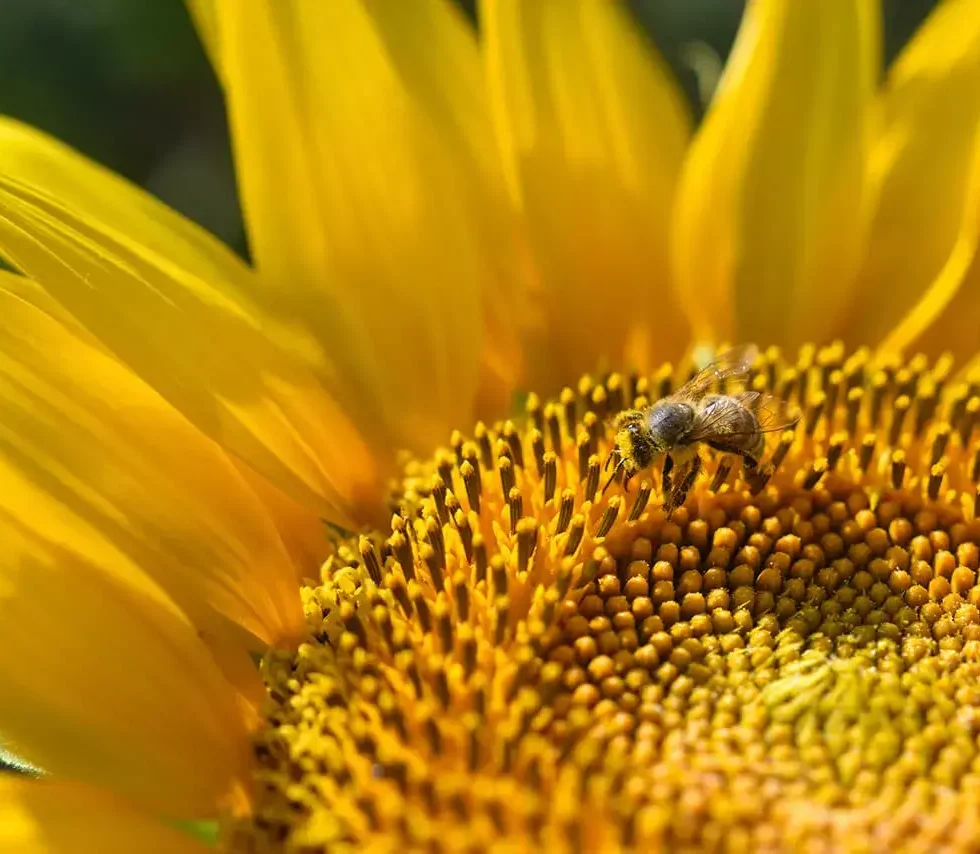
This achievement marks a significant stride forward in our ongoing commitment to sustainable production practices. Despite focusing on just two crops this year – sunflower (linoleic and confectionary) and chickpeas – our entire production process adheres to an elevated and more stringent organic and social standard.
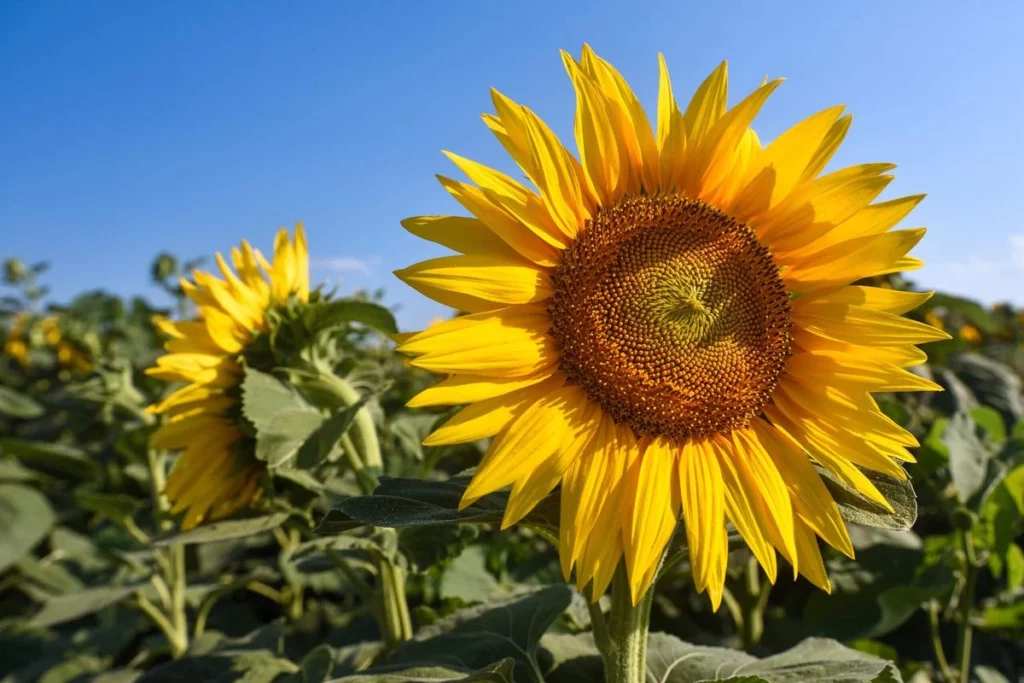
After obtaining our initial EU BIO certification, we proudly extended our achievements by securing the prestigious BioSuisse international certificate in 2022. This certificate reaffirmed the organic status of our farm’s tillage crops under the BioSuisse Organic category, and serve as further validation of our commitment to sustainable crop cultivation.
But why did we seek recognition from the Naturland organization and the BioSuisse standard?
Although the EU BIO certification serves as the fundamental standard for organic certificates in European countries, we believe in continuously pushing the boundaries. We thrive on learning through action and are driven by a pursuit to understand the environmental impact of various agricultural operations, as well as protective measures to ensure their quality. This drive led us to explore the stricter rules and higher organic standards in plant production. Since achieving BioSuisse certification, we’ve now taken a step further by becoming a member of the Naturland organization.
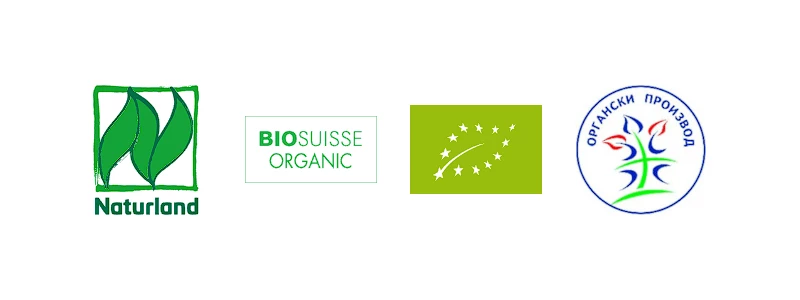
We conducted a comparison of the EU’s basic organic standards, the BioSuisse standard, and the Naturland standard. The disparities between the standards were clear: some have stricter requirements regarding biodiversity, conversion periods, a holistic approach to farming, plant protection measures, fertilization, storage, water resource preservation, and social responsibilities. Guess what? We have not just considered, but have fully integrated the strictest of all of these elements into our farming practices before applying for certifications. Let’s take a closer look at these elements.
BioSuisse regulations mandate that Areas Dedicated to the Enhancement of Biodiversity (ADEB) must comprise at least 7% of a farming operation. In the past year, we exceeded this requirement with 7.5% and have expanded our ADEB hectares for the upcoming season, targeting about 15%. Meanwhile, Naturland emphasizes maintaining and fostering biological diversity on farms, including ecosystems, species, and genetic diversity – a goal we are achieving through our Buffer zone approach.
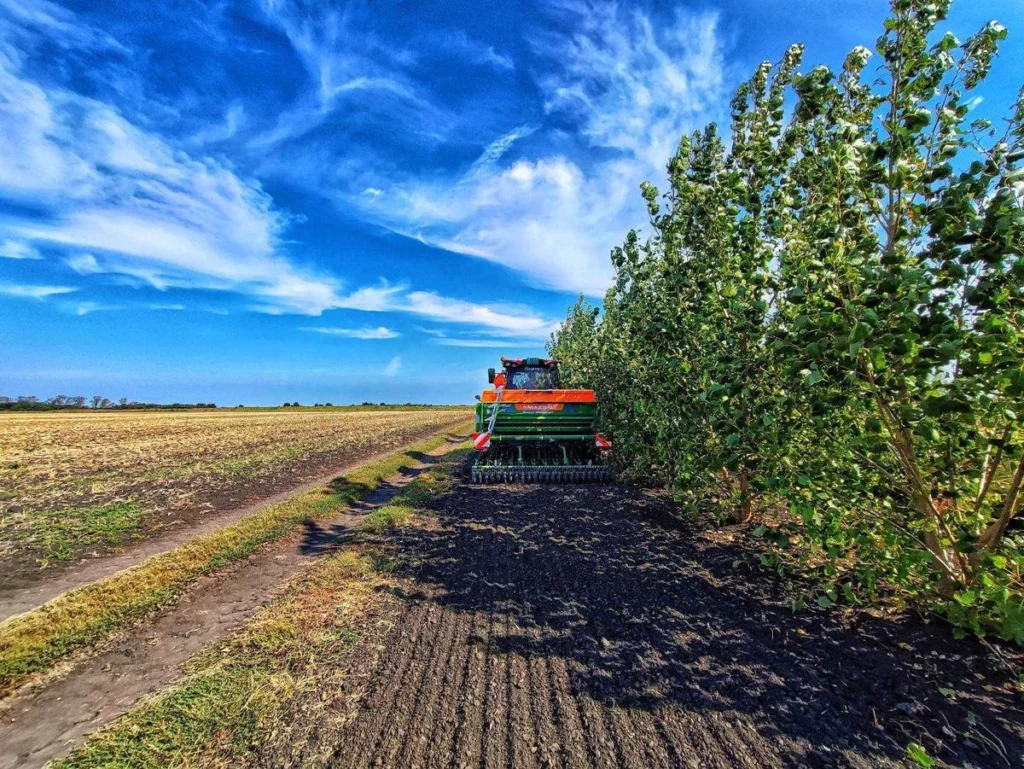
Some of the standards do not allow the shortening of the conversion period. Instead, they require very strict procedures – a Conversion plan – that eliminates risk factors like hazardous waste, emissions, and contamination sources. Our Risk Zones model demonstrates a professional approach to our dedication to preventing contamination.
According to the BioSuisse standard, the entire agricultural operation must be farmed organically, and according to the Naturland standard the producer makes a commitment to adhere to Naturland standards and to extend the conversion to all of his farming area. Our farm and our approach to farming is compliant with both regulations and the whole-farm conversion under unified organic management.
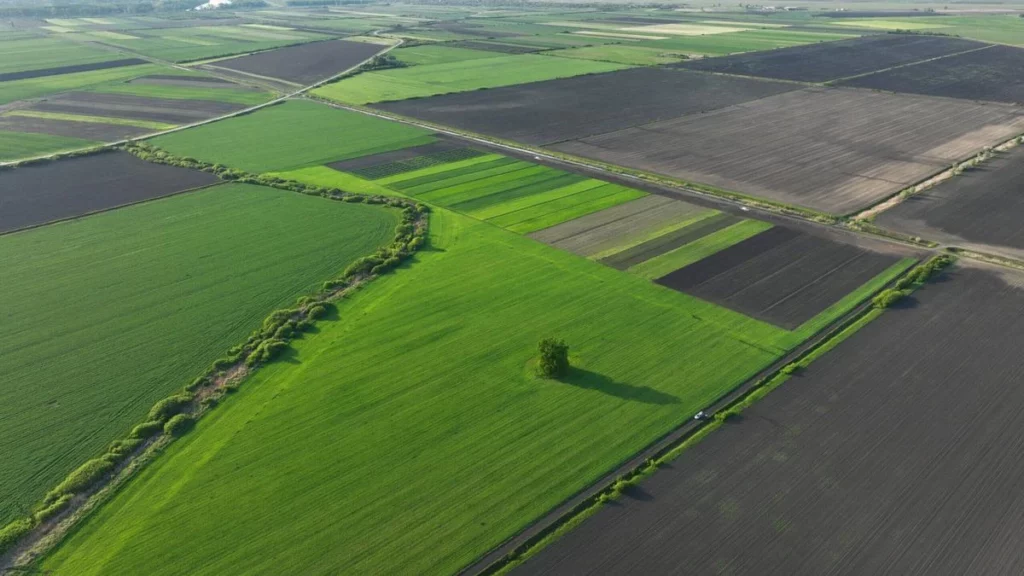
Stringent restrictions exist on active ingredients, such as Copper, Phosphorus, Pyrethrum, Spinosad, microelements, etc. in plant protection products to prevent environmental harm. We have demonstrated our awareness and respect for these restrictions in our agricultural production.
Our approach to fertilization aligns with these standards, particularly in completely omitting livestock manure nitrogen, and prohibiting synthetic chemical nitrogenous fertilizers and easily soluble alternatives. Our nitrogen comes from legumes and plant coverings, fully supporting our plant-based production focus.
Same as plant protection measures, there are restrictions on fertilizer usage. The most important restriction is the quantity of nitrogen from livestock manure. Also, synthetic chemical nitrogenous fertilizers and other easily soluble fertilizers, fecal sludge, and compost from sewage sludge are forbidden. Due to being completely dedicated to plant-based farming, the nitrogen on our farm comes only green manure.
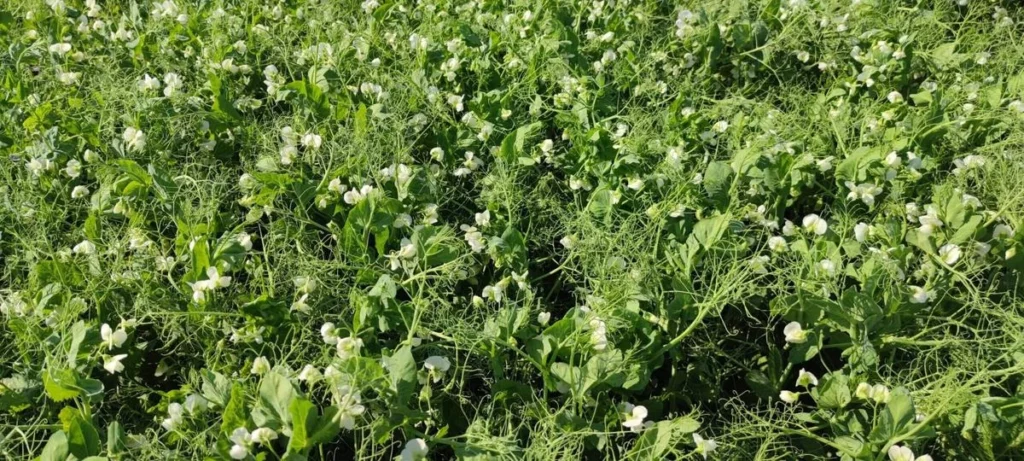
While we are in the process of constructing a new storage facility, which will be compliant with our requirements and needs, we have effectively repurposed an old concrete silo for our organic crops. This temporary solution adheres to all additional standards, including cleaning, fumigation, and CO2 and N2 gassing, as permitted by Biosuisse and has been approved in advance by Naturland.
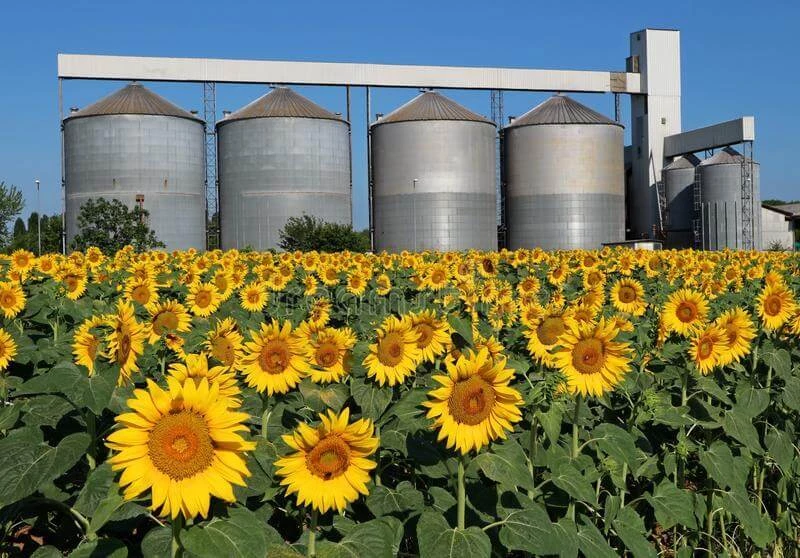
Our irrigation practices cover a small area of trial fields. Our Agro R&D team develops and tests new methods on them that we then implement on the whole farm when they have proven successful, and when they strictly adhere to sustainable water use regulations and a comprehensive water management plan.
In addition to stringent farming production audits, Naturland requires a commitment to social responsibility towards workers on Naturland farms worldwide. Biosuisse, in contrast, mandates a step-by-step implementation of risk-based social audits. Our company underwent a thorough inspection that included interviews with over 10 employees, and we successfully achieved positive ratings. The only recommendation we received was to distribute a self-declaration form to our partners, outlining the social rights of workers. Sharing is caring, especially when sharing good practice examples. 🤝
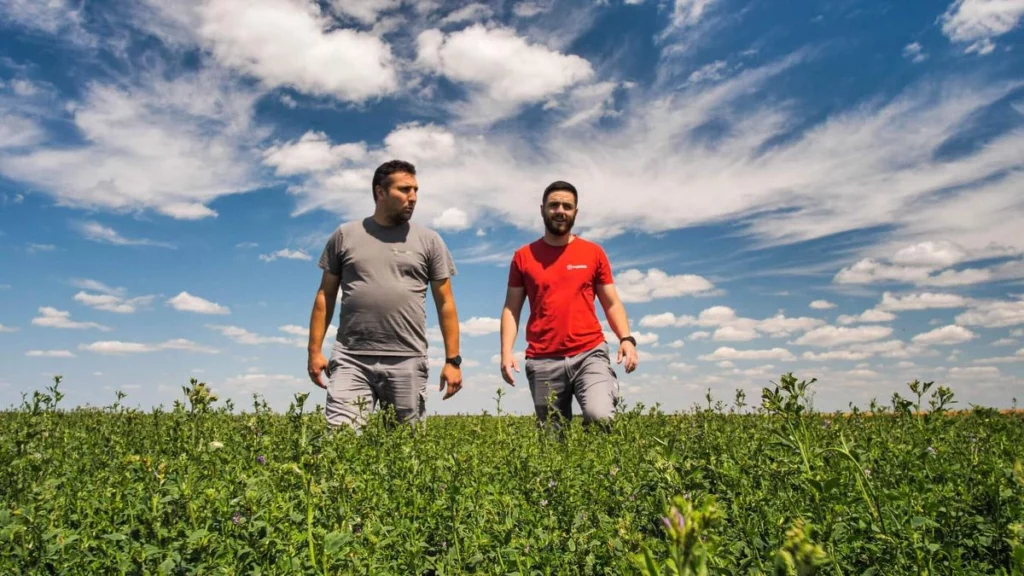
So yes, we cross-checked all of these requirements! And we are proud that all these steps have been supported by and documented in our traceability system, an invaluable and positive side effect of our data-driven farming software.
Njamito is now Fairtrade certified for cocoa and vanilla! Here’s what that means for farmers, the planet, and the values behind our meal-in-a-bottle.
Read articleIdealism met reality as we launched our meal-in-a-bottle, Njamito. After 100.000 bottles sold, here’s what we learned about organic food and market adaptation.
Read articleWith organic seeds in short supply, we launched our own organic seed production journey to secure sustainable farming practices.
Read article